12 Ways Electronic Health Records Enhance Patient Care
Electronic health records (EHRs) have become an essential tool in the healthcare industry. These digital records have replaced the traditional paper-based systems and have revolutionized the way healthcare providers manage patient information. EHRs have streamlined the process of storing, retrieving and sharing patient data, making it easier for healthcare providers to access the information they need to make informed decisions.
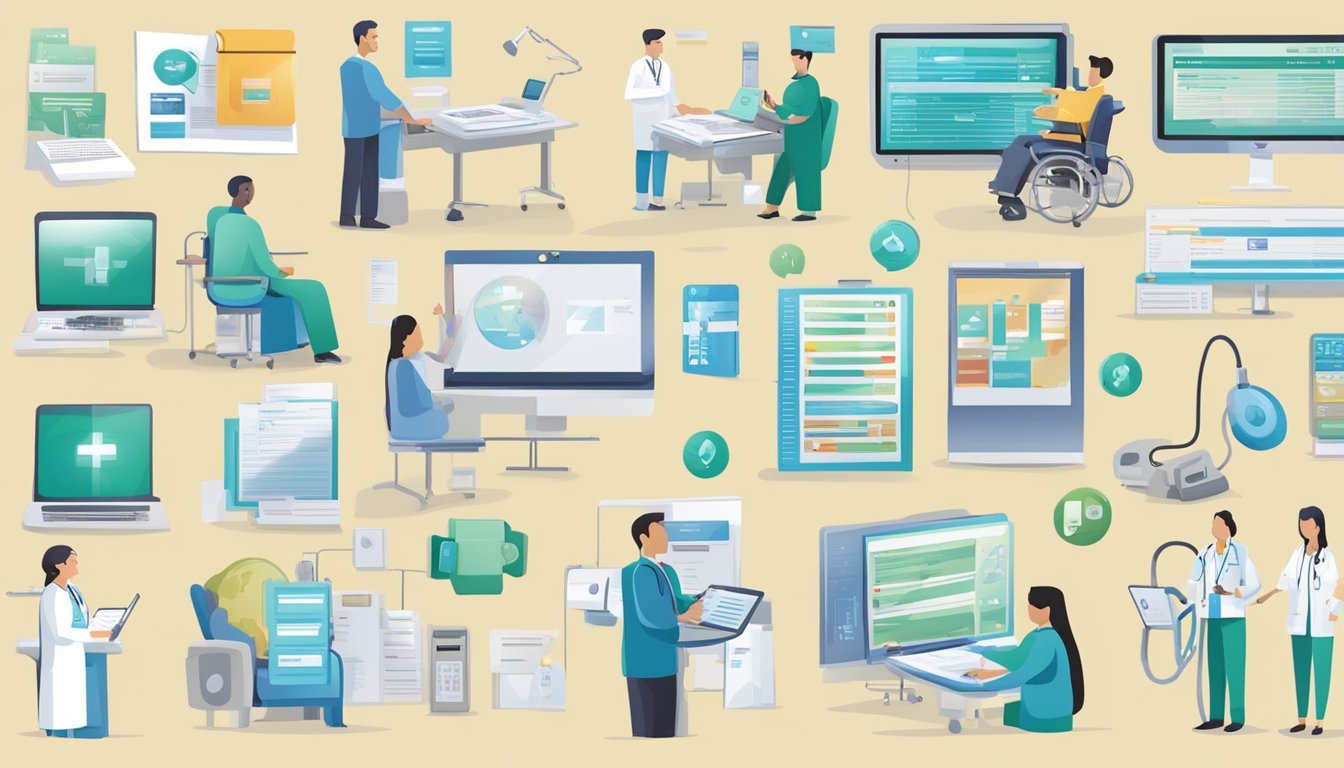
EHRs have the potential to improve patient care in numerous ways. They provide healthcare providers with a comprehensive view of a patient's medical history, which can help them make more accurate diagnoses and create more effective treatment plans. EHRs also allow for more efficient communication between healthcare providers, reducing the risk of errors and improving the overall quality of care. In addition, EHRs can help reduce healthcare costs by eliminating the need for duplicate tests and procedures.
Key Takeaways
- Electronic health records (EHRs) have replaced traditional paper-based systems and have revolutionized the way healthcare providers manage patient information.
- EHRs provide healthcare providers with a comprehensive view of a patient's medical history, which can help them make more accurate diagnoses and create more effective treatment plans.
- EHRs also allow for more efficient communication between healthcare providers, reducing the risk of errors and improving the overall quality of care.
Fundamentals of Electronic Health Records
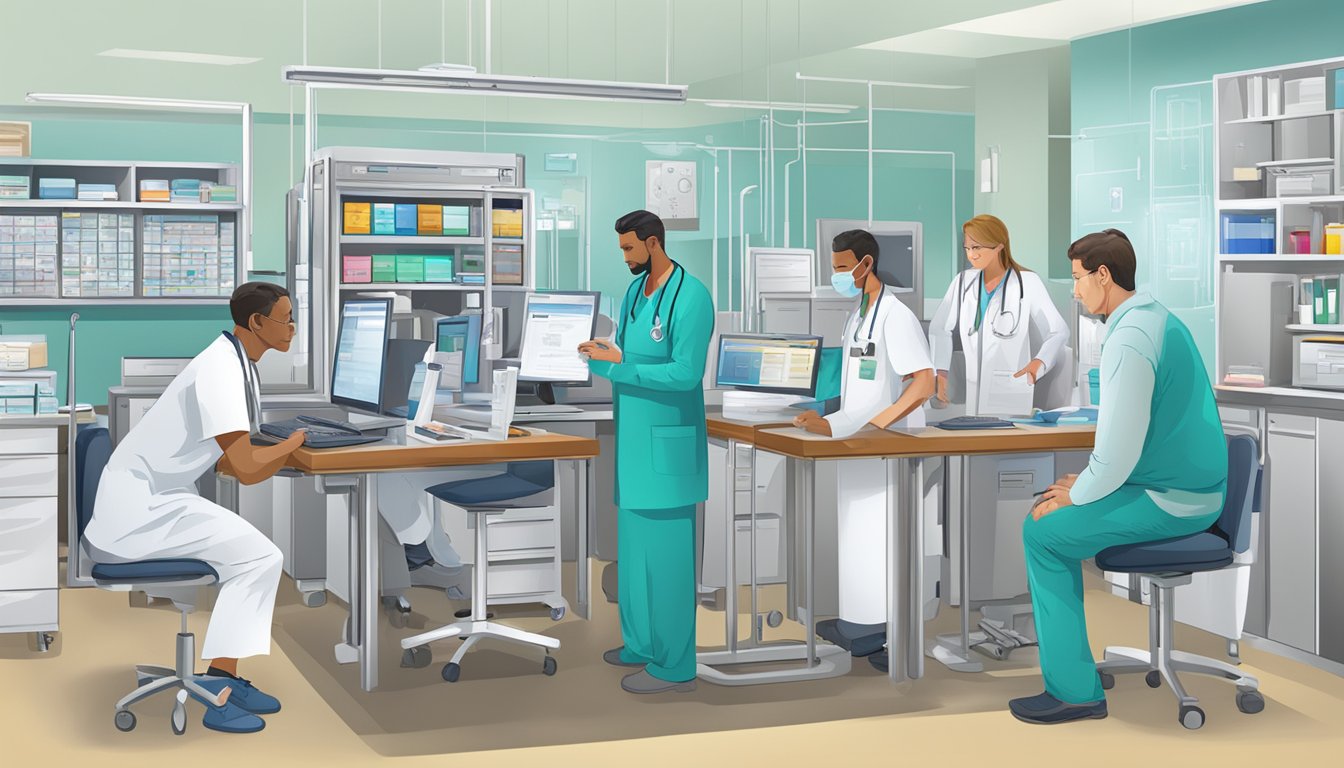
Understanding EHR
Electronic Health Records (EHRs) are digital versions of patients' medical records. They contain a patient's medical history, diagnoses, medications, allergies, immunization dates, and lab results. EHRs are designed to be easily accessible by healthcare providers, allowing them to make informed decisions about patient care.
EHRs provide a comprehensive view of a patient's medical history, which can be very helpful in diagnosing and treating patients. They also allow healthcare providers to quickly and easily share information with other providers involved in a patient's care.
Role in Modern Healthcare
EHRs play a crucial role in modern healthcare. They help healthcare providers to improve patient care by providing them with access to accurate and up-to-date patient information. This can help to reduce medical errors, improve patient outcomes, and increase patient satisfaction.
One of the key benefits of EHRs is that they allow healthcare providers to easily track a patient's medical history over time. This can be very helpful in identifying patterns and trends in a patient's health, which can help to inform treatment decisions.
EHRs also help to improve communication between healthcare providers. They allow healthcare providers to quickly and easily share information about a patient's care, which can help to ensure that everyone involved in a patient's care is on the same page.
In summary, EHRs are a critical tool in modern healthcare. They provide healthcare providers with access to accurate and up-to-date patient information, helping to improve patient care and outcomes.
Improving Patient Care with EHR
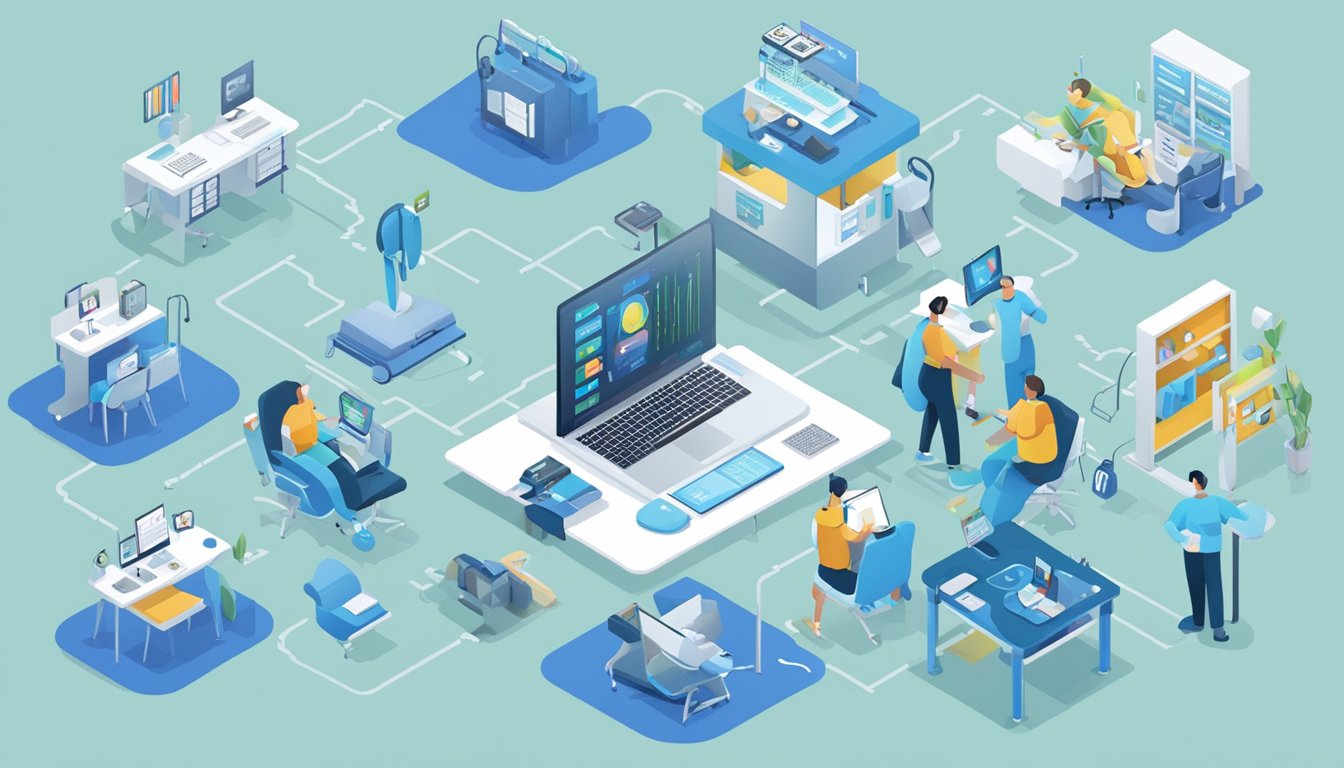
As a healthcare professional, I have seen firsthand how Electronic Health Records (EHRs) can improve patient care. EHRs are digital records of a patient's medical history, including diagnoses, medications, test results, and more. Here are three ways EHRs can improve patient care:
Enhanced Patient Data Management
EHRs provide a centralized location for all patient data, making it easier for healthcare providers to access and manage. With EHRs, healthcare providers can quickly view a patient's medical history, including previous diagnoses, medications, and test results. This helps providers make more informed decisions about patient care and reduces the risk of errors due to incomplete or inaccurate information.
Additionally, EHRs can help healthcare providers identify patients who are due for preventative care, such as vaccinations or cancer screenings. This proactive approach to patient care can help prevent illnesses and catch health problems early, leading to better health outcomes.
Improved Communication and Collaboration
EHRs allow healthcare providers to share patient data and communicate with each other more easily. For example, a primary care physician can quickly share a patient's medical history with a specialist, reducing the need for duplicate tests and procedures. EHRs also allow healthcare providers to communicate with patients more easily, such as through secure messaging or telehealth visits.
Improved communication and collaboration can lead to better patient outcomes and reduce the risk of medical errors. EHRs also provide patients with greater access to their own health information, which can help them make more informed decisions about their care.
Increased Efficiency and Productivity
EHRs can help healthcare providers work more efficiently and productively. For example, EHRs can automate certain tasks, such as sending prescription refills or scheduling appointments. This can free up healthcare providers to spend more time with patients, improving the quality of care.
EHRs can also reduce administrative tasks, such as paperwork and data entry, which can save time and reduce the risk of errors. This increased efficiency and productivity can lead to better patient care and a more positive patient experience.
In conclusion, EHRs have the potential to improve patient care in many ways. By enhancing patient data management, improving communication and collaboration, and increasing efficiency and productivity, EHRs can help healthcare providers provide better, more coordinated care to their patients.
Challenges and Solutions in EHR Implementation
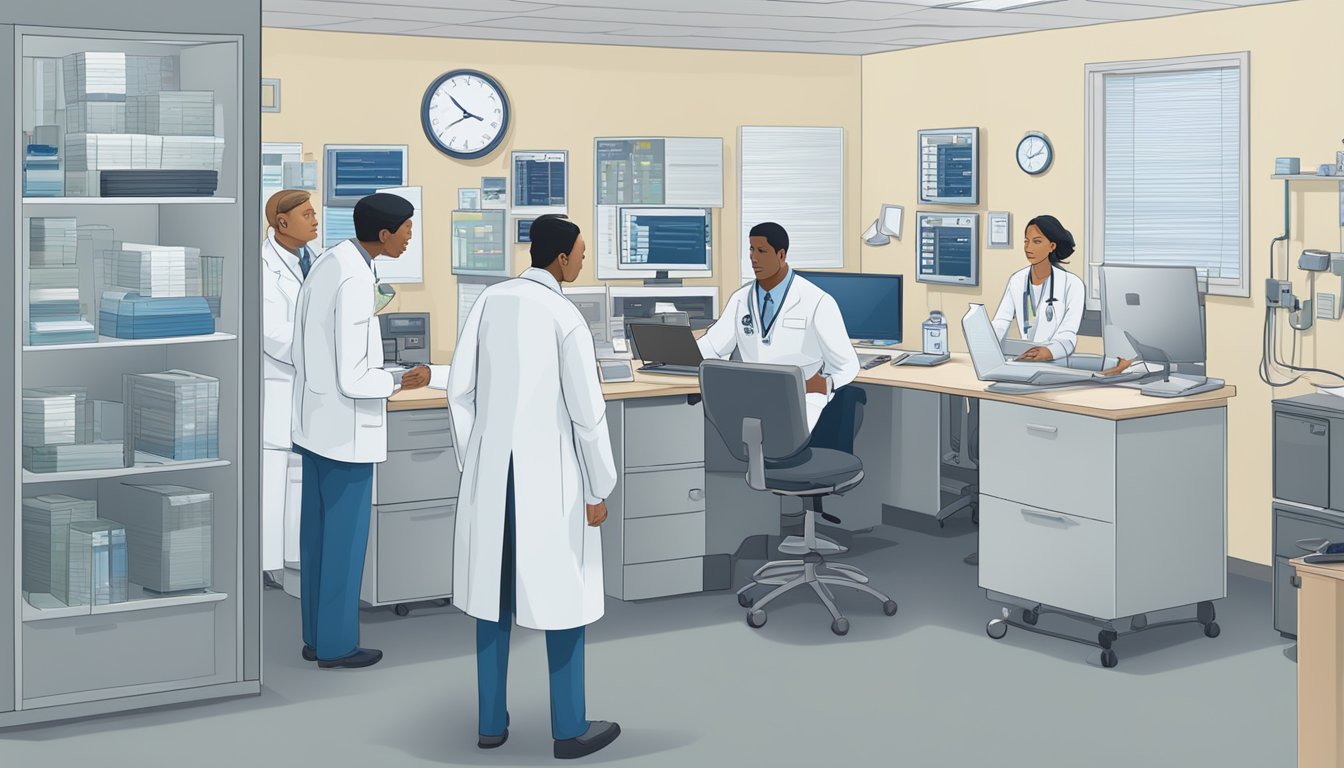
Implementing an Electronic Health Record (EHR) system can be a daunting task for healthcare providers. There are numerous challenges that need to be addressed to ensure the successful implementation of an EHR system. In this section, I will discuss two of the most common challenges faced by healthcare providers during EHR implementation and provide some solutions to overcome them.
Addressing Privacy and Security Concerns
One of the biggest concerns with EHR implementation is ensuring the privacy and security of patient health information. Healthcare providers must ensure that their EHR system complies with all HIPAA regulations to protect patient privacy. They must also implement adequate security measures to prevent unauthorized access to patient health information.
To address these concerns, healthcare providers can take the following steps:
- Conduct a risk assessment to identify potential security risks.
- Implement access controls to restrict access to patient health information to authorized personnel only.
- Use encryption to protect patient health information during transmission.
- Train staff on HIPAA regulations and security best practices.
Overcoming Technical Difficulties
Another common challenge faced by healthcare providers during EHR implementation is dealing with technical difficulties. EHR systems can be complex and require a significant amount of technical expertise to implement and maintain. Technical difficulties can lead to system downtime, which can result in delays in patient care and loss of productivity.
To overcome technical difficulties, healthcare providers can take the following steps:
- Ensure that the EHR system is compatible with existing hardware and software.
- Conduct thorough testing of the EHR system before implementation.
- Provide staff with adequate training on how to use the EHR system.
- Establish a support system to address technical issues as they arise.
By addressing privacy and security concerns and overcoming technical difficulties, healthcare providers can successfully implement an EHR system and improve patient care.
Future of Patient Care with EHR

As healthcare continues to evolve, electronic health records (EHRs) will become even more essential. EHRs have the potential to revolutionize the way in which healthcare providers deliver care to patients. Here are a few ways that EHRs can improve patient care in the future:
- Improved Data Sharing: EHRs allow for the sharing of patient data across different healthcare providers. This can lead to more coordinated care and better outcomes for patients.
- Enhanced Communication: EHRs can facilitate communication between healthcare providers, patients, and their families. This can lead to better patient engagement and more informed decision-making.
- Increased Efficiency: EHRs can streamline administrative tasks, such as scheduling appointments and managing medical records. This can free up more time for healthcare providers to focus on patient care.
- Better Data Analytics: EHRs can provide healthcare providers with valuable insights into patient health trends and outcomes. This can help providers make more informed decisions about treatment plans and interventions.
- Improved Patient Safety: EHRs can help reduce medical errors by providing healthcare providers with accurate and up-to-date patient information. This can lead to better patient safety and outcomes.
As technology continues to advance, the potential uses for EHRs in patient care will only continue to grow. It is important for healthcare providers to stay up-to-date on the latest developments in EHR technology in order to provide the best possible care to their patients.
Frequently Asked Questions
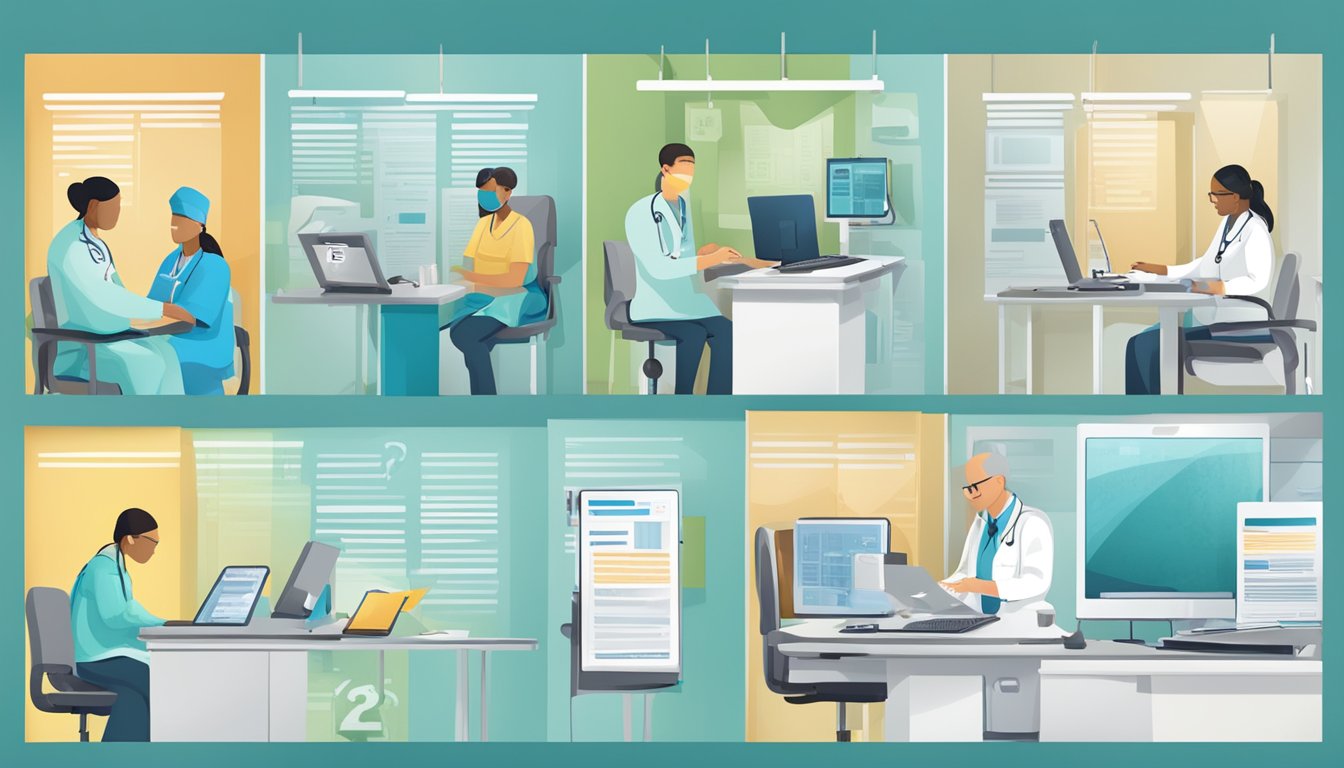
What are some benefits of using electronic health records in patient care?
Electronic health records (EHRs) provide many benefits to patients and healthcare providers. Some of these benefits include improved care coordination, increased accuracy and completeness of patient information, and enhanced patient safety. EHRs can also help reduce healthcare costs by eliminating duplicate tests and procedures.
What are the concerns associated with implementing electronic health records?
While there are many benefits to using EHRs, there are also some concerns associated with their implementation. One concern is the potential for errors in data entry and retrieval. Another concern is the potential for breaches of patient privacy and confidentiality. Additionally, there may be costs associated with implementing and maintaining EHR systems.
What are some ways that electronic health records can improve patient outcomes?
EHRs can improve patient outcomes in a number of ways. For example, EHRs can help healthcare providers identify patients who may be at risk for certain conditions and provide targeted interventions to prevent those conditions from developing. EHRs can also help providers track patient progress over time and adjust treatment plans accordingly.
What are some benefits for healthcare providers when using electronic health records?
EHRs provide many benefits to healthcare providers as well. For example, EHRs can help providers save time by eliminating the need for manual data entry and retrieval. EHRs can also help providers make more informed treatment decisions by providing access to comprehensive patient information.
What are the differences between EHR and EMR systems?
While EHRs and electronic medical records (EMRs) are often used interchangeably, there are some differences between the two. EMRs are typically used by individual providers and contain information specific to that provider's practice. EHRs, on the other hand, are designed to be more comprehensive and contain information from multiple providers and healthcare settings.
How can electronic health record data be used to improve population health?
EHR data can be used to identify trends and patterns in patient health outcomes, which can help healthcare providers develop targeted interventions to improve population health. EHR data can also be used to track the effectiveness of public health programs and initiatives.

We are committed to delivering a new level of automation that will help organizations save time, money, and staffing resources.
 WRITE FOR US!
WRITE FOR US!
